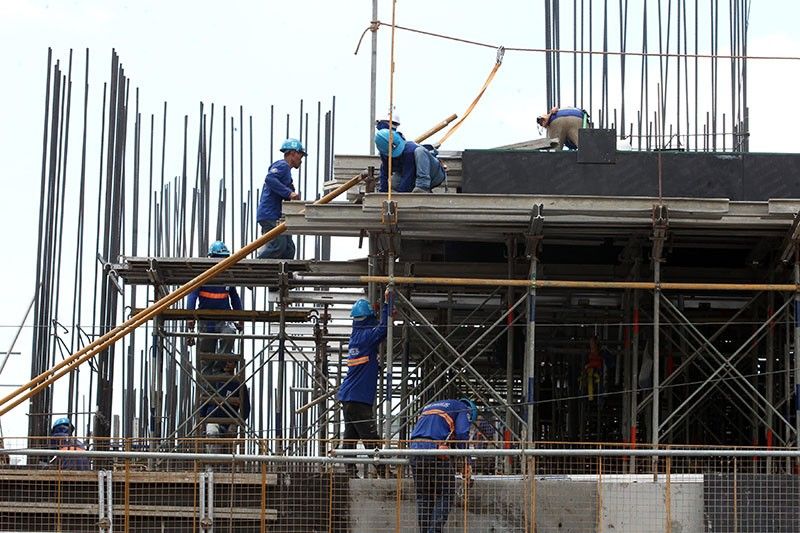Infrastructure spending drops by 11.5% in 8 months

MANILA, Philippines — Public spending on infrastructure declined by 11.5 percent during the January to August period as agencies saw continued delay in construction activities due to the rainy season and the imposition of movement restrictions, the Department of Budget and Management (DBM) reported yesterday.
According to the latest data from the DBM, infrastructure and other capital outlays in the first eight months of the year amounted to P394.5 billion, 11.5 percent down from P445.9 billion in the same period last year.
The DBM attributed the lower spending to higher base effects, with the settlement of accounts payables last year, and the “moderated implementation” of construction activities as a result of the lockdowns and restrictions brought about by the coronavirus pandemic.
Moreover, the DBM said infrastructure disbursements for the month of August remained slow, dropping by 15.4 percent to P44.3 billion from P59.3 billion in the same month a year ago.
“(This is) owing mainly from the unintended delays in construction activities as a result of the rainy season and the implementation of the two-week modified enhanced community quarantine (MECQ) in the National Capital Region (NCR) and nearby regions,” the DBM said.
To recall, the government decided to reimpose a MECQ in Metro Manila and some areas in Calabarzon from Aug. 4 to 18 due to a spike in COVID-19 cases.
Including equities and capital transfer to local government units, total capital outlays in the first eight months of the year amounted to P513.4 billion, 4.6 percent down from P538.4 billion a year ago.
Capital transfers to LGUs climbed by 28.9 percent to P118.1 billion from P91.6 billion, owing to the Bayanihan Grant to Provinces, Cities and Municipalities for COVID-19 measures and releases for the annual block grant for the Bangsamoro region.
Going forward, the DBM said infrastructure and other capital outlays are expected to remain muted for the rest of the year, with the discontinuance of some projects which can no longer be implemented, nor completed due to the pandemic.
“Construction works have also been slowed down by the lockdowns for most of the second quarter, the restrictions following health and safety protocols, as well as the weather conditions in various parts of the country,” the DBM said.
“Nonetheless, both the Department of Public Works and Highways (DPWH) and Department of Transportation (DOTr) remain committed to accelerate implementation and make most of the remaining months of the year to complete or partially complete priority projects,” it added.
The agency said government spending for the remaining months of the year is instead seen to be driven by maintenance expenditures, specifically for health and social-related expenses, with the passage of the Bayanihan to Recover as One Act.
The law provides a P140 billion for a stimulus package that aims to help the country rebound from the ravaging effects of the pandemic, as well as another P25.5 billion in standby funds.
Despite the decline in infrastructure spending, DBM data showed that overall government expenditures from January to August rose by 20.8 percent to P2.67 trillion from P2.21 trillion in the same period in 2019.
- Latest
- Trending


























